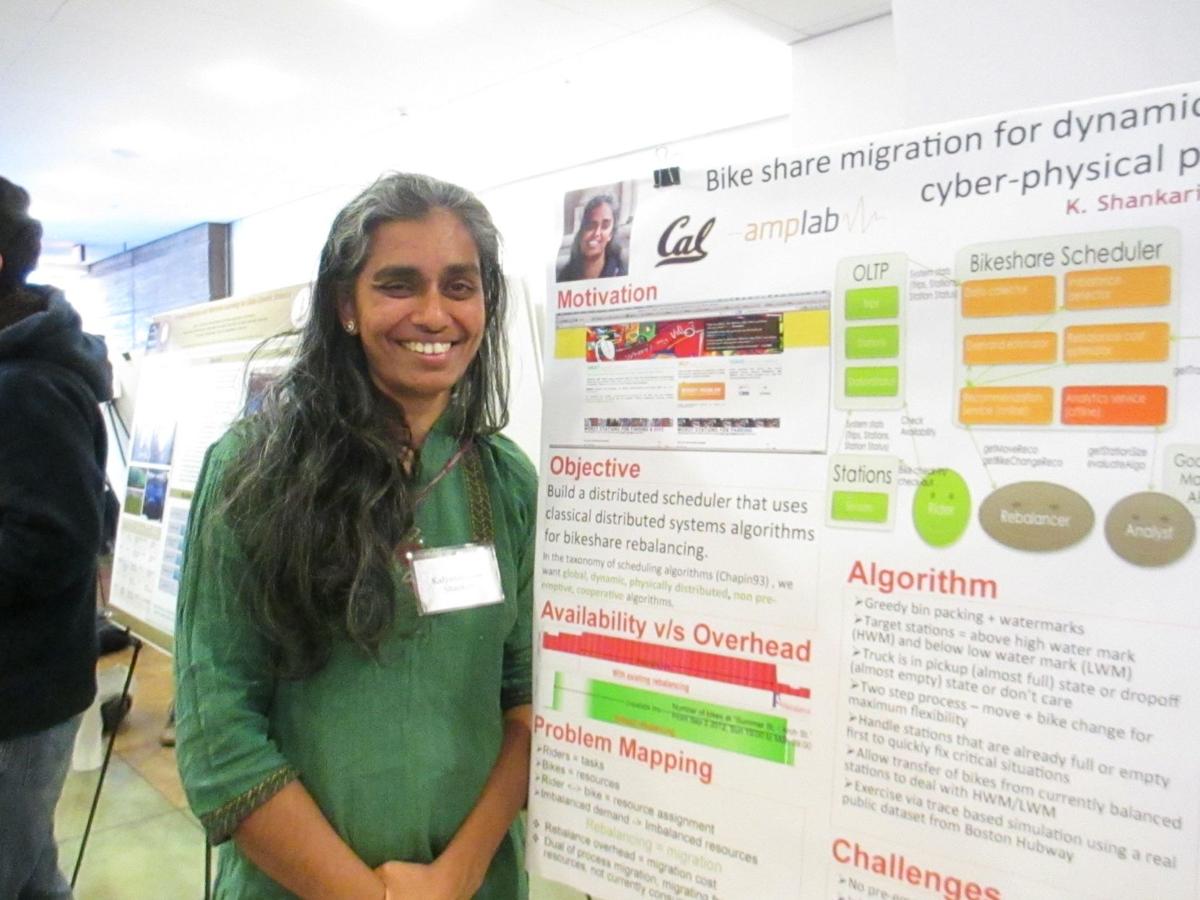K. Shankari, e-mission: An Open Source, Extensible Platform for Human Mobility Systems
Transportation is the single largest source of carbon emissions in the US. Decarbonizing it is challenging because it depends on individual behaviors, which in turn, depend on local land use planning. The interdisciplinary field of Computational Mobility (CM), which focuses on collecting, analysing and influencing human travel behavior, can frame solutions to this challenge. Most prior Human Mobility Systems (HMSes) have been purely applied, lacking bidirectional flow between the two disciplines, and focused on study results instead of system design.
In this talk, Dr. Shankari introduced the idea of Computational Mobility and link it to e-mission, an extensible platform whose modular architecture, use of virtual sensors, and reproducible pipeline form a robust foundation for CM. She presented the first empirical evaluation of HMSes that focuses on system design. The architectural evaluation is based on three archetypal real-world deployments, and the power/accuracy/analysis tradeoffs are based on a novel procedure that uses artificial trips and multiple parallel phones to mitigate concerns over privacy, context sensitive power consumption and inherent sensing error. She concluded by outlining future innovations in both computation and mobility enabled by the platform.
 Dr. Shankari just graduated from UC Berkeley with a PhD in Computer Science and a Designated Emphasis in Global Metropolitan Studies. Her primary research interests are in Computational Mobility (CM), an interdisciplinary field that focuses on collecting, analysing and influencing human behavior. This research is embodied in e-mission (https://github.com/e-mission/
Dr. Shankari just graduated from UC Berkeley with a PhD in Computer Science and a Designated Emphasis in Global Metropolitan Studies. Her primary research interests are in Computational Mobility (CM), an interdisciplinary field that focuses on collecting, analysing and influencing human behavior. This research is embodied in e-mission (https://github.com/e-mission/






